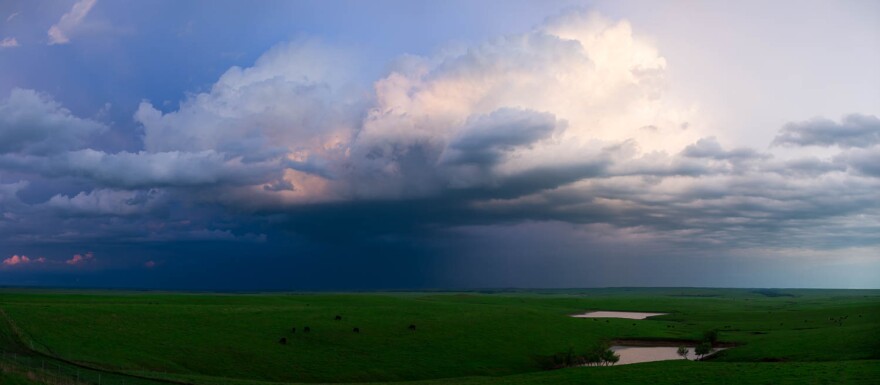Kansas experienced its 23rd-wettest year on record in 2018, according to weather data that goes back as far as 1895.
"But not evenly distributed either across the state or across the year," Kansas State climatologist Mary Knapp said of the moisture.
The year started with much of the state in some form of drought. It wasn’t until heavy rains and flooding in September, October and November that parts of eastern Kansas finally dropped their drought status.
Higher than normal rainfall continued into December where the statewide average was 1.87 inches. That's the 14th-wettest ever.
The state's wettest December was in 1913 when the average rainfall was 3.15 inches.
The especially wet month has saturated soils across the state and could cause problems in the coming year.
"If we have a normal spring rainfall pattern, we could have an increased incidents of flooding simply because there’s nowhere for that water to go,” Knapp said.
Kansas temperatures were in line with historical averages in 2018.
But, like rainfall, temperature varied greatly over the course of the year. April was Kansas' coldest on record, while May was the second-warmest.
"So we went from much colder than normal to much warmer than normal in a very short time span," she said, "which presented a lot of challenges particularly in agriculture."
Climate experts say as average temperatures rise in the region over the next 50 years due to increases in heat-trapping greenhouse gases, Kansas will continue to see wetter individual storm systems in the spring and fall.
Brian Grimmett reports on the environment and energy for KMUW in Wichita and the Kansas News Service, a collaboration of KMUW, Kansas Public Radio, KCUR and High Plains Public Radio covering health, education and politics. Follow him on Twitter @briangrimmett.
Coverage of energy and the environment is made possible in part by ITC Great Plains and the Corporation for Public Broadcasting.
Kansas News Service stories and photos may be republished at no cost with proper attribution and a link ksnewsservice.org.





